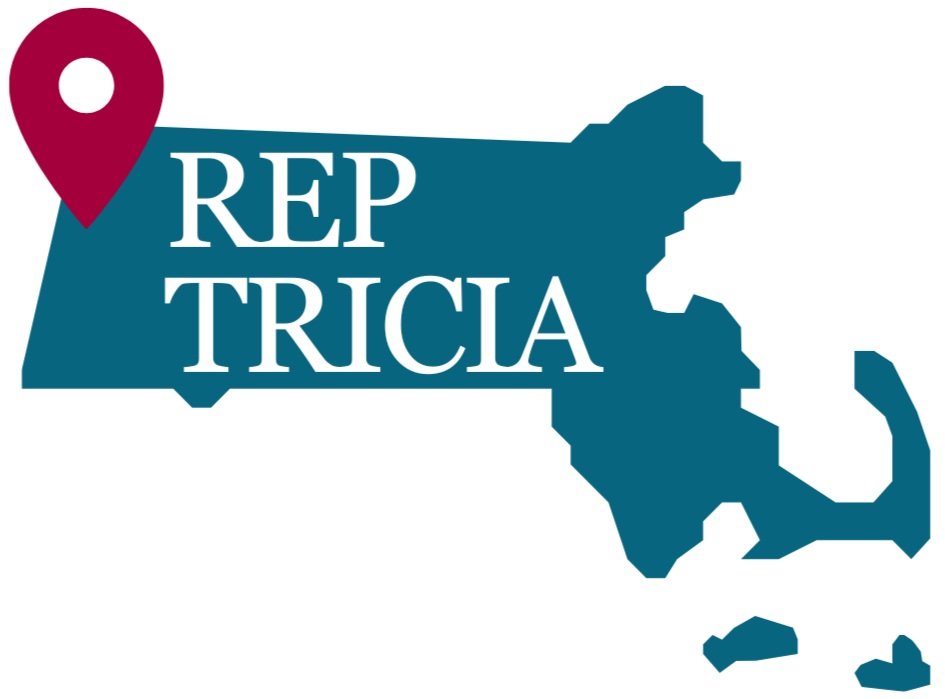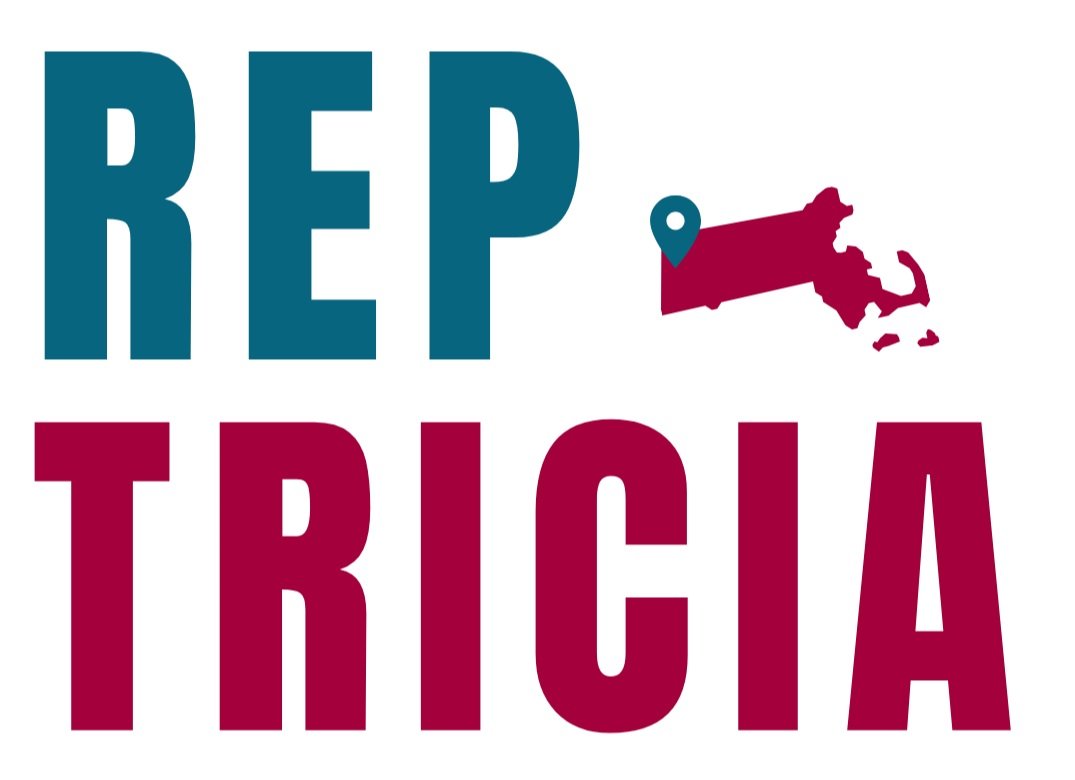Meet Rep. Tricia
In 2011, I was honored to be elected to the Massachusetts House of Representatives through a special election on October 18th. Three weeks later, I had the privilege of taking on the role of Pittsfield’s State Representative.
Pittsfield has always been my home, and I deeply value the community’s trust in me. My educational background begins with Pittsfield High School. I pursued a Bachelor’s Degree in Special and Elementary Education at Salve Regina University. Later, I completed my Master’s Degree in Education at the University of Connecticut.
As of January 2023, I proudly represent the entire Pittsfield community as part of the 2nd Berkshire District. My commitment is to serve the people diligently and be a voice for their needs and concerns. I believe in making a positive impact and working collaboratively to address the challenges that our community faces.
Thank you for the opportunity to serve, and I’ll continue striving to make a difference for all of us.
Rep. Tricia’s Work
-
In the 193rd legislative session, I was appointed by Speaker Ron Mariano to serve as House Chair of the AITIC committee. The official charges of this committee are to review matters relating to advanced information technology, cybersecurity and cyber threats, advanced public telecommunications networks, the internet, broadband access, fifth-generation telecommunications and other such matters as may be referred. The work of this committee is deeply impactful. The legislation we consider involves many other sectors, including but not limited to public safety, consumer protection, workforce and economic development, and so many more.
With its deep impacts on many sectors in Massachusetts and the up-and-coming nature of this work, the legislature is proactively taking on this new area in society. I am honored to be entrusted with this great responsibility by the Speaker and look forward to diving into this important and complex work this session.
-
Caucuses are formed in the legislature to allow individuals with shared interests or district characteristcs to advocate together around issues. I am highly involved in 3 caucuses:
In the Progressive Caucus I serve as co-chair with my colleage Representative Jack Patrick Lewis. The Progressive caucus is a space for like minded colleages to learn from each other and work together to advance legislation that promotes economic, social, and environmental justice.
In the Gateway Cities Caucus, legislators from 26 post-industrial cities across the Commonwealth work together to promote legislation and funding to bring economic development to our communities. Special Funding for the Transformative Development Initiative (TDI), English Language Learning, and the Gateway Cities park program are examples of such work.
In the Massachusetts Caucus of Women Legislators I serve as the co-chair of the Sexual Violence Task for with Representative Natalie Higgins. This task force supports survivors of sexual violence and aims to bring together organizations and individuals committed to ending the epidemic of sexual violence. By bringing advocates and experts together, supporting legislation, and encouraging state legislators and staff to build relationships with their local support services, the Task Force seeks to center the voices of survivors and raise awareness about sexual violence.
-
The foster care system is responsible for the wellbeing and care of children across the Commonwealth. Ensuring it is equipped to protect the children in its care and function as highly as possible is crucial.
Foster Care and child welfare reform has been a long standing priority of mine and each session I file legislation and work with legislative and advocacy partners to improve it and make the system safer for the children.
These stunning statistics about the Massachusetts foster care system show the need for change.
1. The rate of child abuse in Massachusetts’ foster system is nearly four times that national average.
2. In 2020, 73 children died while under state supervision.
3. One-third of foster children are relocated within the first few months of placement. One-third of foster children will be shuffled at least 5 times. Some children have been moved 40 times in 18 months.
4. Massachusetts has a foster care crisis, with a shortage of permanent homes and foster parents. Yet foster parents continue to be the last to receive important communication such as court dates and medical records.
5. Inadequate foster care reviews have long-term consequences. Many children age out of the system without a permanent home or social support, grappling with experiences such as living in a harmful environment or having been unable to seek health care.
-
As a former educator, I want what we can all agree our children need: good schools, strong teachers, excellent curriculum and high expectations. I agree with the need to take a critical review of the Massachusetts Comprehensive Assessment System (MCAS). This system forces teachers to create students “proficient” in Math and English standardized testing, rather than cultivate multifaceted, life-long learning. Education should be about the strength of our teachers and their ability to motivate their students in their own unique way.
Through my tenure in the legislature thus far I have worked with colleagues to advance a new formula for education funding through Chapter 70. The Student Opportunity Act has the goal of more equity to K-12 education AKA more money for Pittsfield Public Schools.
I continue to work on and prioritize funding for our Early Education and Care sector. Our early educators are undersupported and families in need of care cannot access it. The 2022 Commission on Early Education and Care report outlined the need for additional investments in EEC sector and I am grateful to see continued investments each year in the state budget.
-
A central tenant of my work is ensuring regional equity for not only Pittsfield and the Berkshires but also for the entirety of Western Massachusetts. A critical aspect to regional equity is being able to access Boston from the Berkshires and for residents in other corners of the Commonwealth to be able to reach Western Massachusetts. Reliable and accessible public transportation should be an option for all residents of Massachusetts, but without a railway connecting all parts of our commonwealth. In 2022, as part of the Transportation Bonding bill, a Commission for the planning of the Western Mass Rail Commission was enacted into law. This is a major step towards the completion of the West-East rail, in addition to other railways that will connect Western Massachusetts to the rest of the commonwealth. Additionally, $275M in bond funding was included to begin the capital improvements needed as we begin the expansion of Western Mass Rail.









